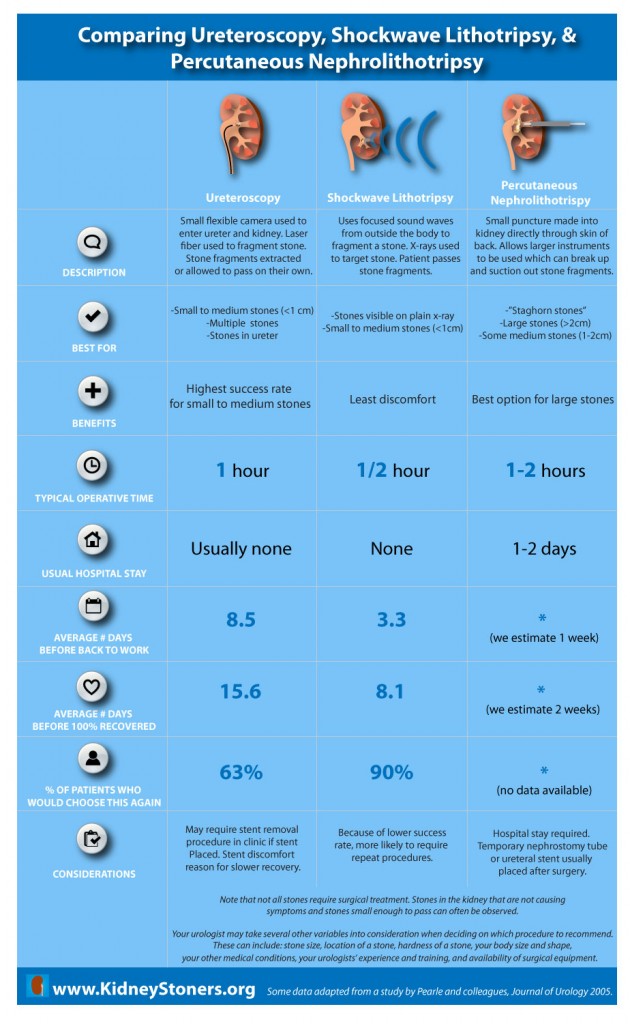There are a number of treatment options available for kidney stones.
Medications to help pass a kidney stone
Extracorporeal shockwave lithotripsy (ESWL)
Percutaneous nephrolithotripsy
Open or laparoscopic surgery for kidney stones
Deciding on which option you should choose can be confusing as there may be no single “right” option. While many stones will pass on their own, some will require surgery to remove. The decision on which approach to take is best discussed with your doctor.
Factors taken into consideration when choosing a treatment option:
- Size of the stone (Stones 5mm or smaller are more likely to pass on their own)
- Location of the stone (Stones further down the ureter are more likely to pass on their own)
- Type of stone (Stones that are more dense are less likely to respond to shockwave treatment. Some stones (uric acid) can potentially be dissolved. Infection related stones need eradication of infection in addition to removal of the stone)
- Severity of symptoms (If symptoms are mild, waiting for treatment or trying to let the stone pass itself is potentially an option)
- Presence of other medical problems (Patients who have decreased kidney function or the diabetes are more likely to need surgery to avoid developing additional problems from their stone)
- Complications that can arise with stones (A kidney infection that develops behind an obstructing stone or impairment in kidney function from a stone can be an indication for emergency surgery to place a ureteral stent)
- Underlying abnormalities in anatomy (Congenital blockages in the ureter or other abnormalities may need to be taken into consideration when choosing a treatment option)
